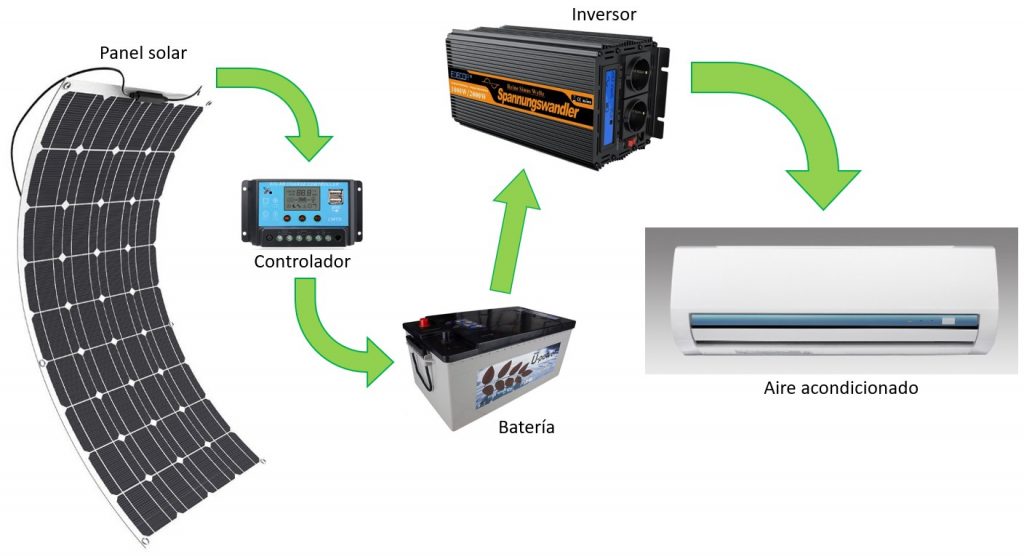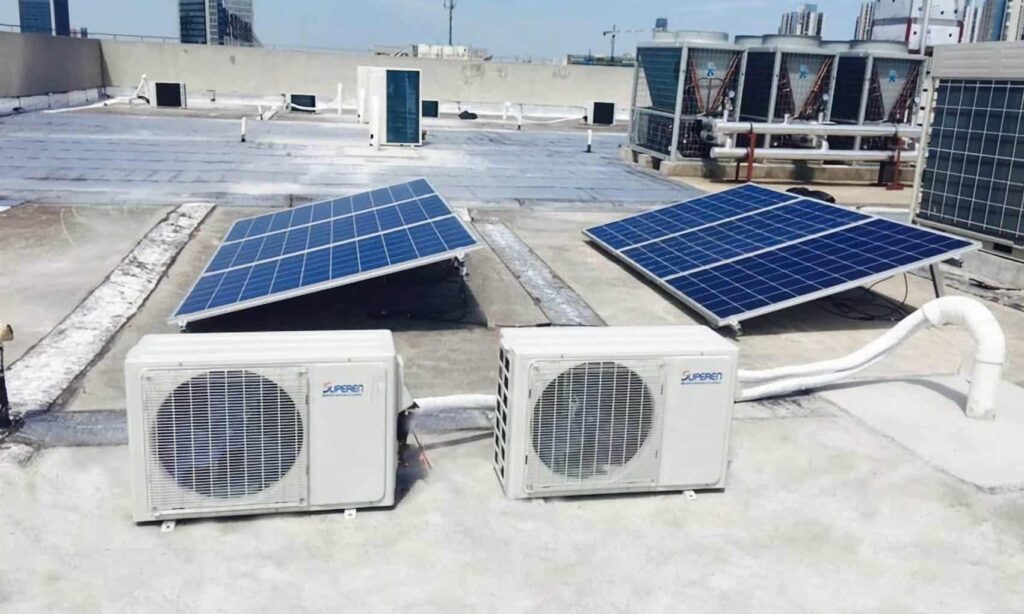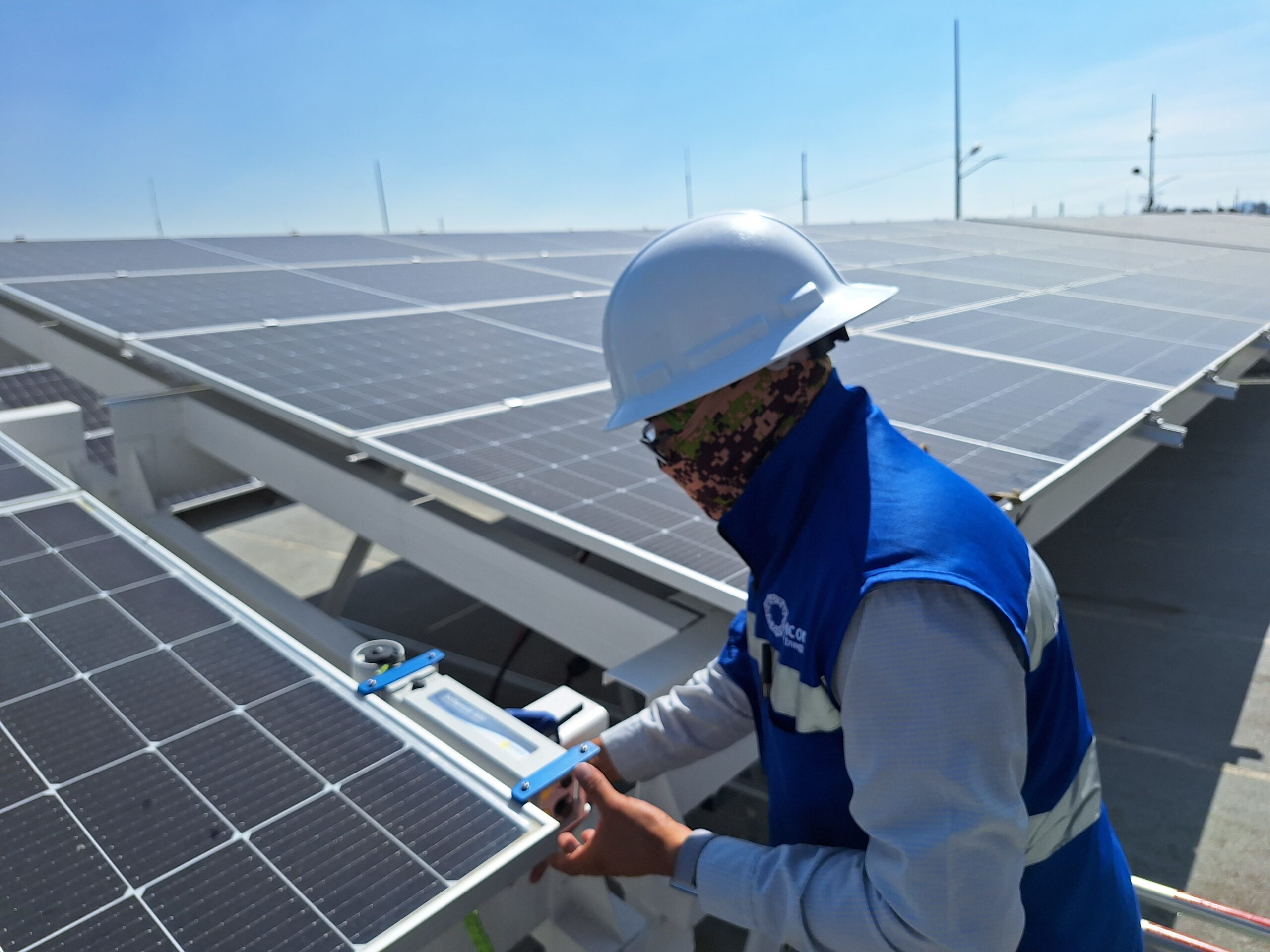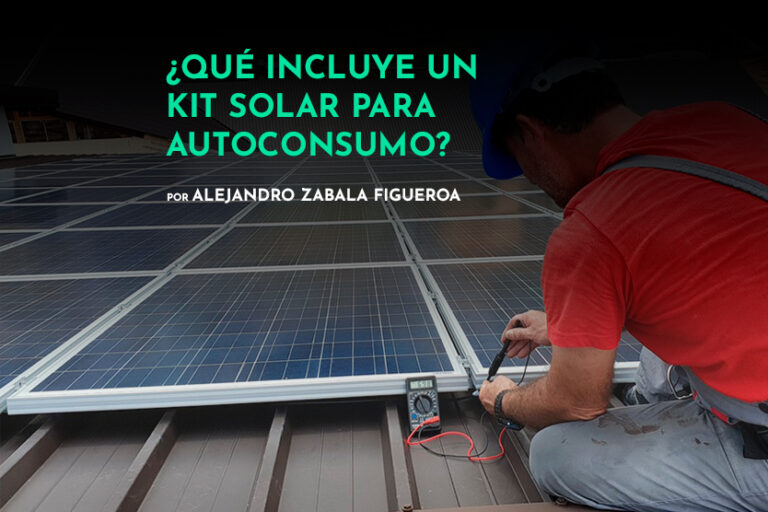Cuántos Paneles Solares Necesito Para Un Aire Acondicionado

Imagine the sweltering heat of a summer afternoon. The sun beats down relentlessly, turning your home into an oven. Relief seems miles away, accessible only through the cool blast of your air conditioner. But what if that relief could come directly from the sun itself, powering your AC unit with clean, renewable energy? It’s a tantalizing thought, connecting comfort with sustainability.
The question on many homeowners’ minds is: how many solar panels do I actually need to run my air conditioner? Determining this involves several factors, from the AC unit's energy consumption to your local climate and the efficiency of your solar panels.
Understanding the Basics
The amount of solar power required to operate an air conditioner isn't a one-size-fits-all answer. It largely depends on the BTU rating (British Thermal Units) of your AC unit, which indicates its cooling capacity. A higher BTU rating means more cooling power, but also higher energy consumption.
According to the U.S. Energy Information Administration (EIA), the average central air conditioner uses around 3,500 watts when running. However, window units can range from 500 to 1,500 watts, making them more energy-efficient to power with solar.
To estimate your needs, you also need to consider solar panel wattage and average daily sunlight hours. A typical solar panel produces between 250 and 400 watts under ideal conditions.
Calculating Your Solar Needs
Let's illustrate this with an example. Suppose you have a window AC unit that consumes 1,000 watts and you live in an area with an average of 5 peak sunlight hours per day. To power the AC unit directly from solar panels, you'd ideally need panels that can generate at least 1,000 watts.
If each panel produces 300 watts, you would need approximately 3-4 solar panels (1000 watts / 300 watts per panel ≈ 3.33 panels). However, it’s crucial to account for system inefficiencies and potential cloud cover, so overestimating slightly is always a good idea.
It's important to acknowledge that running an air conditioner solely off solar panels, without battery storage, means it will only operate during daylight hours. This is a significant consideration for overnight cooling needs.
The Role of Battery Storage
For 24/7 cooling, battery storage becomes essential. Excess solar energy generated during the day can be stored in batteries to power the AC unit at night or during cloudy periods. The size of the battery bank depends on your energy consumption patterns and how many hours you need to run the AC when the sun isn't shining.
Consider that the initial investment for solar panels and battery storage can be significant. However, the long-term benefits, including reduced electricity bills and a smaller carbon footprint, often outweigh the upfront costs.
Net metering is another factor to consider. Many utility companies offer net metering programs, where excess solar energy generated by your system is sent back to the grid, and you receive credit on your electricity bill. This can further offset the costs of powering your AC unit with solar.
Beyond the Numbers: Professional Consultation
While these calculations provide a good starting point, it's always best to consult with a qualified solar installer. A professional can assess your specific energy needs, evaluate your roof's suitability for solar panels, and provide a customized system design.
They can also help you navigate local regulations, permitting processes, and available incentives or rebates for solar energy systems. This ensures that your solar installation is efficient, safe, and compliant with all applicable standards.
Factors to Consider
Beyond the technical aspects, consider your personal energy goals and budget. Are you aiming for complete energy independence, or simply to reduce your reliance on the grid? These goals will influence the size and complexity of your solar system.
Remember to account for the lifecycle cost of your solar panels. While solar panels are generally durable, they do degrade slightly over time. Most manufacturers offer warranties guaranteeing a certain level of performance for 25 years or more.
Looking to the Future
As solar technology continues to advance and prices decline, powering your air conditioner with solar energy is becoming increasingly accessible and affordable. This not only provides a sustainable cooling solution but also offers long-term financial benefits and contributes to a cleaner environment.
Embracing solar energy is a step towards a more sustainable future, where comfort and environmental responsibility go hand in hand. The initial investment may seem daunting, but the rewards – both environmental and financial – are well worth considering.


















